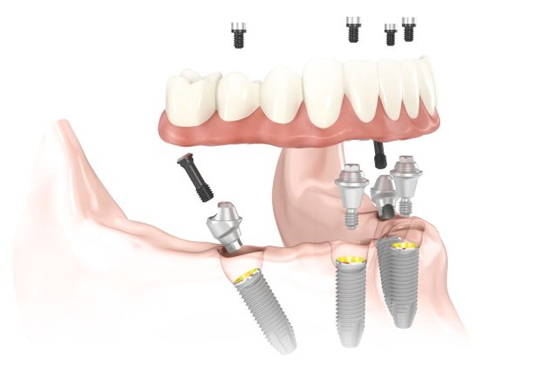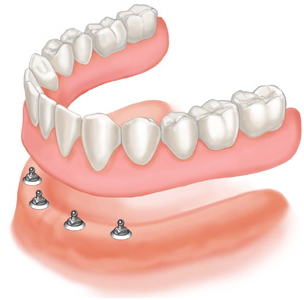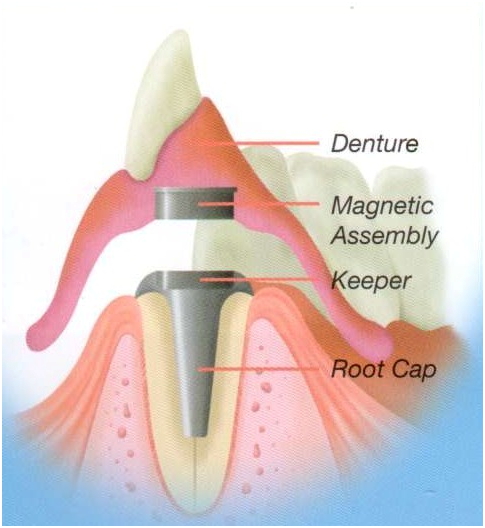Full mouth reconstruction
The use of dental implants + active dentures to solve the problem of full-mouth tooth loss, but also help to maintain the health and comfort of the mouth.
Full-mouth rehabilitation is needed when the teeth are worn down, broken, missing or if you experience pain in the jaw joint, headaches, back pain, muscle tenderness or clicking or popping of the jaw, then you should consider this procedure, causing problems in both the bite and appearance of the mouth.
Wisdent dental clinics can totally rejuvenate your mouth, creating a healthy, beautiful smile in short time . This process is so successful that others cannot distinguish the real teeth from the restored teeth.
Full mouth rehabilitation utilizes current technologies to reshape and rebuild one’s teeth, gums and surrounding areas. One or several procedures may be necessary to obtain the effects desired. The result is an enhanced appearance that allows the patient to enjoy the confidence and attractiveness you have always desired. Full mouth rehabilitation begins with the gums, the foundation for the teeth and the rest of the mouth. Prosthodontic Dentists work to customize treatment for each patient’s needs.
Implants offer many advantages over dentures. Following is a comparative list of the disadvantages of dentures versus the advantages of a full-mouth rehab procedure with dental implants.
Disadvantages of Conventional Dentures
- Compromise integrity of facial structures
- Accelerate visible aging due to unattractive changes in facial appearance
- Cause pain, sore spots, and denture breath
- Require relining as bone melts away
- Require adhesives
- Cause an inability to eat certain foods
- Contribute to embarrassment in social situations when denture moves or falls out
Long-term Benefits of Implant-supported Tooth Replacement
- Virtually stops bone loss/deterioration
- Maintains integrity of facial structure
- Improves facial appearance, restoring lost lip support and minimizing wrinkles
- Increases comfort
- Restores natural biting and chewing capacity
What is the All-on-4 treatment concept ?
The All-on-4® treatment concept is a cost-efficient, graftless solution that provides patients with a fixed full-arch prosthesis on the day of surgery.
Characteristics include:
- Full-arch rehabilitation with only four implants
Two straight anterior implants and two implants tilted up to 45º in the posterior
- Immediate Function (fixed provisional bridge)
For patients meeting criteria for immediate loading of implants
- Graftless procedure
Bone grafting is avoided by tilting the posterior implants, utilizing available bone

Rapid improvement in quality of life
A fixed full-arch prosthesis on the day of
surgery quickly leads to improved patient satisfaction – with regards to function,
esthetics, sense, speech and self-esteem.2,3
Shorter treatment times
Tilting of the posterior implants avoids the
need for time-consuming bone grafting procedures, while immediate loading
shortens time-to-teeth.4
Lower costs
The concept is the least costly in comparison with conventional implant treatment modalities of the edentulous and soon-to-be edentulous jaw.4
Rapid improvement in quality of life
A fixed full-arch prosthesis on the day of
surgery quickly leads to improved patient satisfaction – with regards to function,
esthetics, sense, speech and self-esteem.2,3
Shorter treatment times
Tilting of the posterior implants avoids the
need for time-consuming bone grafting procedures, while immediate loading
shortens time-to-teeth.4
Lower costs
The concept is the least costly in comparison with conventional implant treatment modalities of the edentulous and soon-to-be edentulous jaw.4
IMPLANT-SUPPORTED DENTURE
An implant-supported denture is a type of overdenture that is supported by and attached to implants. A regular denture rests on the gums, and is not supported by implants.
An implant-supported denture is used when a person doesn't have any teeth in the jaw, but has enough bone in the jaw to support implants. An implant-supported denture has special attachments that snap onto attachments on the implants.
Implant-supported dentures usually are made for the lower jaw because regular dentures tend to be less stable there. Usually, a regular denture made to fit an upper jaw is quite stable on its own and doesn't need the extra support offered by implants. However, you can receive an implant-supported denture in either the upper or lower jaw.

Magnetic dentures
A chair-side magnetic attachment for both partial and full overdentures supported by natural elements. It can be applied directly by the dentist and is very easy to use. It resembles pre-fabricated core-post systems. The magnet can be fixed into the denture.

診療項目
- Endodontics (Root canal treatment)
- Waterlaser Gingival recontouring for ascetics
- Minimally invasive & 3D guided dental implantology
- Treatment of periodontal diseases assisted with LASERS
- Dental Veneers
- Full mouth reconstruction
- Orthodontics
- Safe removal of dental Amalgam fillings Inlay/ Onlay fabrication
- Temporomandibular Joint Disorders(TMD) Treatment
Reservation
- TEL : +886-3-2870074
- ADD. : No.206, Sec. 1, Gaotiezhanqian W. Rd., Zhongli Dist., Taoyuan City 320 Google Map
 Service Items
Service Items